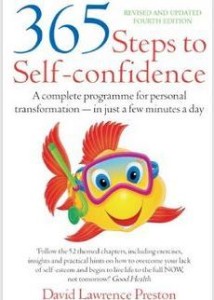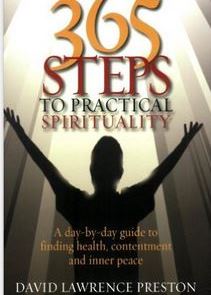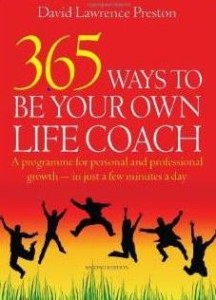How you think matters.
There is a direct connection between what you think and what you say and do, and what you get out of life. As long as you keep thinking as you’ve been thinking, you’ll keep feeling as you’ve been feeling, doing as you’ve been doing, and getting what you’ve been getting. So if you want something different, do something different; and if you want to do things differently, change your way of thinking. Your behaviour will follow suit. It’s the way we’re made.
Fortunately becoming a habitual positive thinker is no more difficult than learning to ride a bicycle!
The Cycle of Thoughts
You have approx. 50,000 thoughts a day, but where do they come from? There are four main sources:
a) Your unconscious. All the experiences you have ever had, whether real or imagined, are recorded in your unconscious mind. When any of this material floats to the surface, you register a thought. This is where the majority of your thoughts come from.
b) Sometimes a thought is triggered by a feeling. A feeling of hunger, for instance, can trigger the thought I’m hungry, I want food.
c) Your intuitive self, including your imagination.
d) You can consciously, purposely and deliberately create them.
The Cycle of Thought goes as follows:

1. You have a thought
You cannot prevent a thought arising from the unconscious, but you do have the power to act on or ignore it, accept or reject it. You don’t have to be attached to any thought if you don’t want to.
2. You decide
Thoughts do not inevitably lead to action, although some people act and react without a great deal of conscious thought.
3. You act – or you don’t
You act. Or you don’t. You speak. Or you don’t. If you like what you get, you do it again. If not, eventually you try something different.
4. If repeated, a habit forms
Whenever you repeatedly place your attention on a thought pattern, you create a new habit or strengthen an existing one. And if you withdraw your attention from an unwanted habit, it will fade and die.
5. Habits direct your thoughts
Habits direct your thoughts – if you let them. But you can challenge them and change them if you want to and it you’re determined enough.
Becoming a positive thinker
How do you take charge of your thoughts? Simple. By changing what you say to yourself. Remember, conscious thinking is really just talking to yourself.
Do this using the Four Step Method:
1. Be mindful
2. Interrupt self-defeating thoughts
3. Feed in the positives
4. Keep at it
Step One: Mindfulness
Mindfulness is paying attention to your thoughts – listening to your ‘internal dialogue’ or ‘self-talk’.
Try this: Every so often, pause. Break off from whatever you’re doing and be still. Withdraw your attention from everything around you and go inside. What are you thinking? Is it positive or negative? Where is it coming from? Why are you thinking that thought? Where is it taking you?
The more you do this, the better. It is the first step in initiating change – and it’s powerful.
Step Two: Thought stopping
You can only hold one conscious thought at a time, so if you become aware of a thought that serves no useful purpose interrupt it. Say something like ‘Stop!’, ‘Cancel!’, ‘Go away!’, or ‘Next!’. This breaks the pattern.
In addition, do something physical like clapping your hands, stamping a foot or banging a table. You can also imagine closing a book, a symbolic gesture that that’s the end of it.
If you catch yourself thinking negatively, don’t be annoyed with yourself. This will only make you more likely to slip up again. Just let it go.
In time thought stopping becomes unnecessary. Negative thoughts don’t bother entering your head once they realise that they are going to be firmly dealt with!
Step Three: Feed in the positives
Having stopped the unwanted thought, immediately replace it. The simplest replacement for an unwanted thought is its direct opposite, e.g. replace ‘I can’t’ with ‘I can.’ Say it as if you really mean it.
Another option is to use an affirmation. Either make one up on the spur of the moment or use a favourite one such as ‘I like myself’, ‘I am strong and worthy’ or ‘I am cool, calm, and in control’.
If at first you feel you’re lying to yourself, don’t worry. It doesn’t matter if your new thought isn’t literally true (yet). This method is just a tool to help you change your way of thinking.
Make it your motto never to say or think anything that you don’t want to be true! You will be directing your unconscious mind to create the situations and behaviours you want.
Step Four: Keep at it!
Persistence is the key to success. It takes about a month to change an old thinking pattern.
Don’t let others put you off. Most people are unaware of how powerful their negative thinking is. Nor do they realise they have it within their power to change.
You can’t change others’ thoughts – only they can do that. But you can enlist their support by explaining what you’re doing. If all else fails, you may have to minimise your contact with negative people until your new thinking habits are firmly established.
These Four Steps are very powerful: in fact, properly used they can even help overcome debilitating fears and phobias.
Can you think of any reason why you can’t start applying these Four Steps right away?
And remember – merely reading through these materials without putting them into practice is like reading the label on the bottle without taking the medicine!
©David Lawrence Preston, 5.3.2016

Follow me on Facebook and Twitter @David_L_Preston






